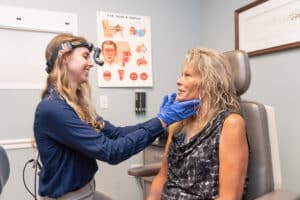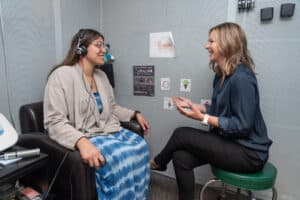Allergy Issues
Allergies in Children
Does your child frequently sneeze or cough often without appearing ill? Do they frequently break out in a rash or hives? Do they often get a tummy ache, diarrhea, cramping or nausea after eating certain foods? If so, they may be suffering from allergies.
At Boulder Allergy Clinic, we are committed to your child’s well-being, and we understand that allergies can be a source of discomfort for many youngsters. Allergies are common among children, even those without a family history of allergies. If you suspect your child may be affected by allergies, schedule an appointment with one of our caring and experienced providers here at Boulder Allergy Clinic today.
Identifying and treating childhood allergies early will improve your child’s quality of life, quality of sleep, improve social interaction and minimize missed days from school (and minimize the sick time you have to take off of work!)
Allergy Symptoms in Children
Symptoms can vary widely in children depending on exposure, sensitivity and multitude of other factors but some of the most common signs your child may be suffering from allergies include:
- Itchy rashes or hives
- Dry skin patches
- A constant clear runny nose
- Frequent sneezing
- Dark circles under their eyes
- Frequent dry hacky cough
- Itchy, watery and red eyes
- Swelling of the eyelids, lips, or itchy tongue
- Frequent wheezing
- Coughing around pets or in certain environments
- Frequent tummy aches, nausea, vomiting and diarrhea
- The Allergic Salute – itching or rubbing of the nose upward
Common Triggers of Allergies in Children
Unfortunately, anything can trigger an allergic reaction. These triggers, known as “allergens” can be any substance that our body identifies as foreign or dangerous. The body then “triggers” its immune response to rid the body of these “dangerous invaders”. Areas of the body that are sensitive to these allergens become inflamed. Coughing, sneezing, even vomiting are all ways the body tries to expel these substances it deems dangerous and the reaction can be so severe it can be life-threatening.
Outdoor Allergens
Allergens outside can be numerous but may be seasonal if related to pollen. They often include:
- Tree pollen
- Grass pollen
- Plant pollen
- Smoke from burning wildfires
- Insect bites or stings
Indoor Allergens
Like allergens outside, indoor allergens can be numerous as well but usually more controllable. Common indoor allergens include:
- pet or animal hair or fur
- dust mites
- mold
Irritant Allergens
Certain chemicals can cause allergic reactions as they irritate the skin or respiratory system. Common irritants allergens include:
- Cigarette smoke
- Perfume/cologne
- Car exhaust
- Fragrant sprays
Food Allergens
Allergies to food substances can express themselves in a wide array of symptoms often including skin, digestive tract, heart and respiratory system. Around 170 food allergens have been identified but just a few groups make up 90% of food allergies. These include:
- Eggs
- Milk
- Peanuts
- Tree nuts
- Wheat
- Sesame
- Soy
- Fruits and vegetables
- Seafood and shellfish
Conditions Caused by Allergies
Allergic rhinitis (hay fever)
The most common childhood condition caused by allergies in children is allergic rhinitis. Symptoms include an almost constant clear runny and sometimes itchy nose, sneezing, postnasal drip and nasal congestion (stuffy nose). Although it’s commonly called “hay fever,” allergic rhinitis isn’t triggered by hay and does not cause a fever.
Allergic Asthma
Also called extrinsic asthma or allergy-induced asthma, allergic asthma is asthma caused by allergens. Allergic asthma is frequently triggered during the spring, fall and summer allergy seasons due to pollen. However, it can flare up any time depending on what environmental allergens your child is allergic to as some are present year-round. It is estimated that approximately 80-90% of children with asthma have allergy triggers, whereas only 50% of adults do.
Anaphylaxis
If your child has any significant allergy to something, you should be aware of the possibility of anaphylaxis — a potentially life-threatening reaction that causes restriction in breathing, a sudden drop in blood pressure, lethargy and eventually shock. Most children with severe food allergies for example, are prescribed epinephrine (adrenaline), which can be self-administered with an auto-injector by patient or parent as soon as symptoms of severe allergy or anaphylaxis start. Ask your healthcare provider if your child needs to have an epi-pen in case of emergencies.
Contact Us Today!
At Boulder Valley Ear, Nose & Throat Associates, we provide the highest quality patient care in a friendly, professional atmosphere. We emphasize personalized customer service, availability, efficiency, honesty and integrity, and attention to detail. We strive to do things the right way at every level, all the time.
If you think your child may be suffering from allergies, schedule an appointment with one of our caring and experienced ENT specialists for a full evaluation today!










